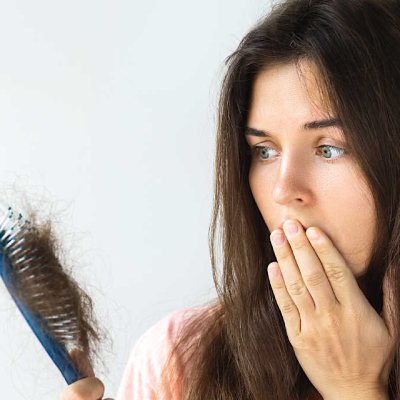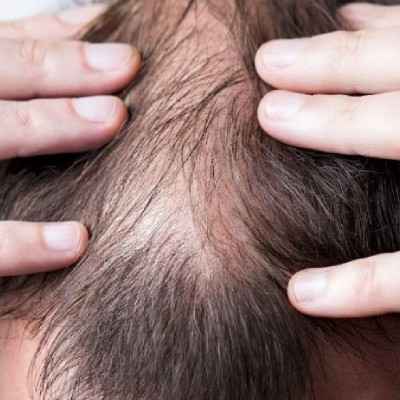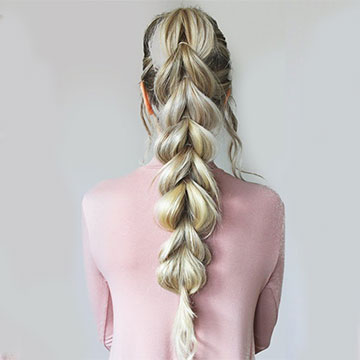Japanese Hair Care Secrets

04 November 2019

Hair Experts @ AHS

Whenever there is a mention of Japanese women, we all tend to think of someone having fair and clear skin and long beautiful shiny hair. This is the ideal image of a Japanese woman, no matter what their age is. Even in the most humid summers, Japanese women manage to tame their hair.
Whenever there is a mention of Japanese women, we all tend to think of someone having fair and clear skin and long beautiful shiny hair. This is the ideal image of a Japanese woman, no matter what their age is. Even in the most humid summers, Japanese women manage to tame their hair.
The Japanese have always been known for their gorgeous and healthy skin and hair. But the question arises is that how do they manage to look so natural and perfect all the time?
Fortunately, after some research on Japanese hair care trends, we managed to find out a few Japanese beauty secrets that are now out in the open. There are a few interesting Japanese beauty secrets for those of you who admire their looks, especially hair. These you can try out for you and can get rid of many hair problems. These are easy to follow and the results are quite similar.
Here we are sharing some of the Japanese hair care tips that will give you shiny, beautiful and healthy hair just like Japanese people:
Keep Brushing!

Instead of brushing their hair once, Japanese women brush several times a day! By combing your hair appropriately, it helps in distributing hair's natural oils to the rest of your hair. Japanese women don't just use any brush to comb their hair but the Japanese tsuge wood combs. These combs are polished tooth by tooth and are handmade from tsuge (boxwood) which is one of the densest, hardest and densest types of wood. These combs also give the hair a glossy luster, help to distribute oils and because they're not made out of plastic or metal you can say goodbye to stagnant frizzy hair during dry winters.
Maintain A Traditional Balanced Diet

People in spite of knowing the fact that diet plays a big role in keeping our hair and skin in better and healthy condition, they mostly forget that what we put inside our bodies is directly associated with how we look on the outside. A traditional Japanese meal usually includes- one soup with three vegetable dishes along with rice and fish, which makes sure to provide a good balance. These spreads are high in omega-3 fatty acids and rich in vitamins that help reduce the body’s production of toxins that can cause premature aging and inflammatory skin conditions.
Kelp (kaiso) and Seaweed (wakame ) are found in almost every Japanese dish and are highly rich in keratin and iodine, which are both highly necessary for healthy skin, nails and glossy elastic hair. Fish is rich in protein and lower in fat as compared to red meat, while small portions of a variety of vegetables will supply much-needed vitamins and minerals. Japan is also known to produce a number of superfoods such as kinako, konjac, and natto. These are easily available and cheap in comparison to other superfoods in other countries.
Camellia Oil

Most of the time, Japanese skin and hair care include oils; the most popular one is camellia oil and is a part of traditional Japanese hair care. Camellia oil is often incorporated in Japanese hair shampoos and conditioners but women also apply pure camellia oil directly to wet hair to seal the natural moisture and keep the hair hydrated. Camellia oil prevents split ends, repairs the hair and you will notice that it's a lot easier to untangle your hair after applying this oil. Argan oil became popular, a few years back in many western countries but you should definitely give camellia oil a try as well.
Vitamin C

The Japanese are known for incorporating Vitamin C in their everyday life. Their daily diet consists of oranges that break up melanin and deoxidize. This is the secret behind their even and fair complexion. It helps remove any pigmentation marks and gives you an even skin tone. We often relate vitamin C with our ability to fight colds but hardly ever consider the fact that it works its magic by enhances our natural collagen supply, as well as retaining bone density and overall health. It also helps breakdown and deoxidizes melanin, the natural pigmentation we get in our skin from aging or tanning.
It’s the gleaming vitamin that brightens things up and helps give you natural and glowing skin. Japanese women frequently take vitamin C through food, drinks, supplements, vegetables and fruit, and cosmetic products as well. In fact, there are some Japan-only fruit and vegetables, such as shiso, which is a type of wild basil, the citrusy yuzu, and kaki- Japanese persimmon, which are all enormously rich in the miracle vitamin. You can find these products at any drugstore in supplement forms, while vitamin C-rich products for example broccoli, acerola, yuzu, parsley, kaki, kiwi, bell pepper and goya are available at any market in your locality.

Use Green Tea for Various Purposes

Green tea is an important part of the Japanese lifestyle and is highly rich in antibacterial, antioxidant and anti-inflammatory properties. Japanese women have also included green tea in their beauty routines — from adding ground leaves to bath salts to including the extracts in various lotions and tonics and even adding concentrated powders to hair masks and body compress treatments. Matcha, which is the ground form of green tea leaves, is known for its high concentration of catechin polyphenols, which have limitless health and beauty benefits. Tannins have high concentration also helps to tighten the skin. Green tea powder can fight the damage caused by UV rays, reduce inflammation, especially with acne-prone skin, reactivate dying skin cells and help balance skin tone.
Wash Your Hair Every Day.

It might not apply to the girls living in various countries of the world, but for Japanese people, the idea of not washing the hair every day is sickening and not appropriate.
Japanese women are very particular about their hair, and not hair but the scalp as well. As they take their scalp as being the same skin as the face, so they do not go to work or meet friends without washing their hair. Regularly washed hair doesn't associate with damaged hair in Japan. Also, they have the habit to use hairdryers all the time. They don’t leave their scalp damp, as you might never know what bacteria grow in the damp environment. Not only this, but it can cause irritation and odor.
Less is More

You should use mild shampoos and hair conditioners that contain natural ingredients like persimmon, seaweed and camellia work great for our hair. In view of the fact that many Japanese bathe and wash their hair daily, it's essential that they take well care of it. Modern-day shampoos mostly have ingredients that strip the hair of its natural oils, for example, sulfates.
EndNote
Using some of these Japanese hair care secrets is possible in your daily life too. Give them at least a few weeks to see visible results. Try them out and tell us how it worked for you.
However, if you are experiencing unwanted hair issues such as hair loss or hair thinning, then you must take expert advice before the problem gets out of control. You can consult with hair specialists at Advanced Hair Studio for effective hair fall treatment. There are surgeons and hair experts who have been offering highly effective treatment such as Advanced Hair Therapy, Strand by Strand Ultimate etc. The clinic is also accepted to be one of the best hair clinics for providing better options to the currently available Hair Weaving, Hair Transplant, Hair Extensions, etc, in the market. They have the best hair experts and surgeons who are highly qualified, experienced, experts in hair restoration & treatment; they suggest effective hair fall treatment for hair regrowth for men & women.
Stay Updated
Subscribe to our email newsletter for helpful tips and valuable resourses
Be an influencer
Join forces with Advanced Hair Studio! Explore exciting collaboration opportunities tailored for influencers. Let's redefine haircare together.
Connect now












